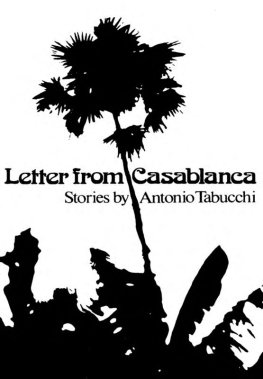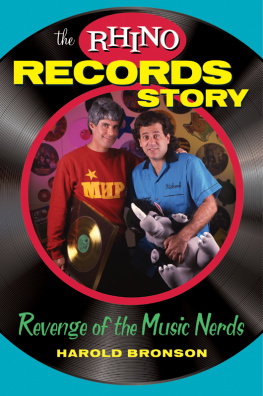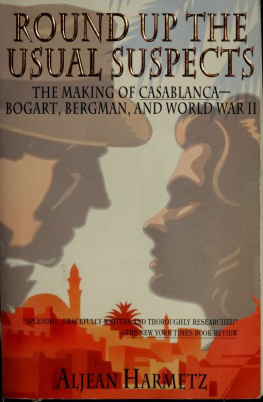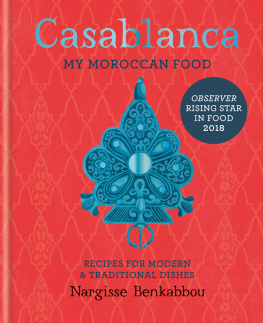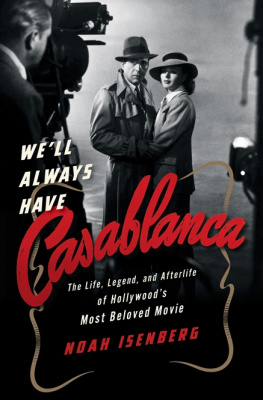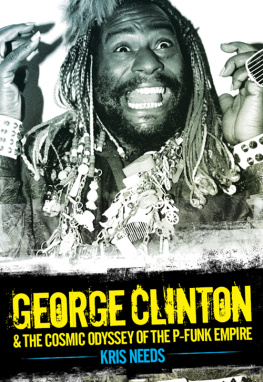
Copyright 2009 by Larry Harris
All rights reserved. No part of this book may be reproduced in any form, without written permission, except by a newspaper or magazine reviewer who wishes to quote brief passages in connection with a review.
Published in 2009 by Backbeat Books
An Imprint of Hal Leonard Corporation
7777 West Bluemound Road
Milwaukee, WI 53213
Trade Book Division Editorial Offices
19 West 21st Street, New York, NY 10010
CASABLANCA is a trademark of the Universal Music Group family of companies and is being used under license.
Printed in the United States of America
Book design by Lynn Bergesen
Typography by UB Communications
Library of Congress Cataloging-in-Publication Data
Harris, Larry Alan, 1947-
And party every day : the inside story of Casablanca Records / Larry Harris, with Curt Gooch and Jeff Suhs.
p. cm.
Includes bibliographical references, discography, filmography, and index.
9781617748745
1. Casablanca RecordsHistory. 2. Sound recording industryUnited StatesHistory. 3. Scott, Neil, 1943-1982. 4. Popular musicUnited StatesHistory and criticism. I. Gooch, Curt. II. Suhs, Jeff. III. Title.
ML3792.C37H37 2009
781.64097309047dc22
2009032038
www.backbeatbooks.com
To Neil Bogart, my mentor, friend, and second cousin
(once removed, whatever that means)
a true creative force in the entertainment industry,
whose energy and gutsy approach to everything
from music and film to philanthropy
made the world a better place.
While, like the rest of us, he wasnt perfect,
he certainly made his mark
on the lives of countless millions.
Preface
A long time ago, I met a man who was painting a building. It was a small building, and he asked me to help him paint it, so I did. As we were painting, people would walk by. A few of them looked a bit crazy, just like us, so we asked them to help, and they did.
And then the building started growing. The more we painted, the more the place grew. The more it grew, the more crazy people showed up to help us paint it.
The building was becoming a palace, but it wasnt necessarily a nice palace. Soon, it was filled with things you wanted so desperately you could taste them. Things that you got and ended up wishing you didnt have. Money. Cocaine. Weed. Booze. Sex and mountains of Quaaludes. Success and excess at every level. And, worst of all, the promise of more. Within five years, the palace took up an entire city block, and the sign out front read Casablanca Records.
My boss, my cousin, my mentora complete fucking genius named Neil Bogartwas the guy who started us all painting. Painting the building was his mantra, his way of saying that if you looked successful, you were successful. Perception was reality. He was right.
But the story of Casablanca was about more than just Neil. It was about the 1970s. I take that backit wasnt about the 1970s, it was the 1970s. It was the story of the music industry in the go-for-broke Me Decade. In those five years, we built our beloved Casablanca from a four-person, one-act outfit into a corporation with 175 employees, more than 140 artists, and an Academy Awardwinning motion picture division.
I was along for the ride, sometimes serving as the trains engineer, but for the most part, I was the one in charge of stoking the fire and clearing the tracks so that the unstoppable steam engine called Casablanca could keep chugging up the hill. We all believed in that bedtime story about the little engine, and, no matter the odds, we always knew we could, we knew we could, we knew we could...
Larry Harris
July 2009
Prologue
Even in the bacchanal of 1970s Los Angeles, the drug
and promotional excesses of Casablanca Records stood
out. In a period when cocaine use was probably at its
peak in the music business, Casablanca set the pace ...
Encyclopedia Britannica
July 21,1978
Casablanca Record & FilmWorks Headquarters
8255 Sunset Boulevard
Los Angeles, California
You stupid fucking idiot!
I was pissed. I was so pissed I was shaking. I was on the phone with Bill Wardlow, the head of Billboard magazines chart department, holder of one of the most powerful positions in the music business. I had just called him a stupid fucking idiot. And I wasnt even close to being done.
You cant do that! We had an agreement! I dont care if their record is selling better than oursthat has nothing to do with it! Give them No. 1 next week. We discussed this yesterday, and you told me we would have No. 1! You have to change it back. I already told Neil that we would be No. 1.
I wasnt just pissed, I was scared. I had promised to deliver Billboard s No. 1 album in the country to Casablanca, and now a done deal had been yanked from mefrom usat the eleventh hour.
I was intimately familiar with all the steps that had to be taken to get the top album in the country, and screaming at the head of Billboard s chart department was way, way down the list. Yet it was a step I was taking. I knew that they werent going to let out the chart information for another two hours. They could still change it. I wasnt going to stop screaming until they went to press.
I couldnt care less if Al Coury already knows about the numbers! Did he pay you off in cash? I helped you out where no one else could, and this is how you pay me back? You are a complete asshole to put me in this position!
People were beginning to congregate outside my office to watch the meltdown. Neil Bogart walked in through our adjoining office door, clearly surprised at my outburst, and attempted to talk me off the ledge. No one had ever heard me yell with such venom and hatred. And they certainly had never heard me yell at Bill Wardlow.
Bill had promised me that our three-disc soundtrack LP for Thank God Its Friday would be No. 1. Now he was reneging and giving the top slot to Saturday Night Fever. In truth, Saturday Night Fever deserved it. It was outselling us ten to oneeasilyand I knew it. RSO, the label that had released Saturday Night Fever, shared a distributor with Casablanca, and I had access to their sales figures. The movie was doing much bigger box office than ours, too, but I didnt care. Not only did I want to end Saturday Night s impressive twenty-plus-week run at No. 1, but I also wanted the image enhancement that went along with being No. 1 and the increased sales for our picture and album.
For the past two years, I had had control over the Billboard charts and was able to significantly affect the positions of our records to help establish a perception that our company, Casablanca Records, and our artistsamong them, KISS, Donna Summer, the Village People, and Parliamentwere the hottest in the music industry. I was not going to accept a broken promise. This guy had screwed with the charts for years and years, and now he was screwing with me.
Casablanca was our child. We gave birth to it, we nurtured it, we fought many battles to keep it alive, and to have someone not give it the respect I felt it deserved was unacceptable. But this story begins long before I even knew who Bill Wardlow was, when Neil Bogart was not king of the hottest label in the record biz but just Neil Bogart, my second cousin from Brooklyn.



